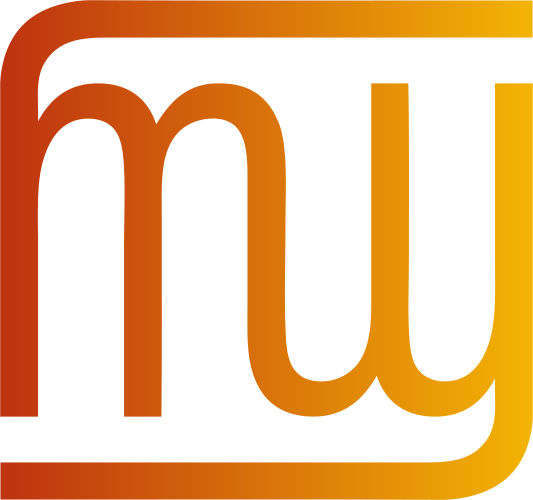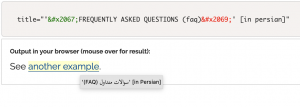
The W3C Internationalization (I18n) Activity works with W3C working groups and liaises with other organizations to make it possible to use Web technologies with different languages, scripts, and cultures. From this page you can find articles and other resources about Web internationalization, and information about the groups that make up the Activity. Read also about opportunities to participate and fund work via the new Sponsorship Program.
What the W3C Internationalization Activity does
Selected quick links
Selected quick links
Selected quick links
WEB I18N GAP PROGRESS: N’Ko Unjoined font

Noto N’Ko Unjoined fonts in regular and bold are now available, making it possible to create unjoined headings in text.
WEB I18N GAP FIXED: N’Ko tone marks

N’Ko tone marks are now all at the same height in the Noto fonts as well as Ebrima and Kigelia.
First Public Working Draft: NʼKo Layout Requirements
This document describes requirements for the layout and presentation of text in the N’Ko script when used by Web standards and technologies, such as HTML, CSS, Mobile Web, Digital Publications, and Unicode. It is developed in conjunction with a document which summarizes gaps in Gurmukhi support on the Web and eBook technologies.
The first public working draft is published to encourage users and experts to review the information it currently contains, and provide any additional information that may be relevant to supporting users of the N’Ko script on the Web.
Please send comments by raising a GitHub issue for each point.
Updated article: How to use Unicode controls for bidi text
The W3C Internationalization Activity has updated the article How to use Unicode controls for bidi text.
This article looks at how content authors can apply direction metadata to bidirectional text when markup is not available. It was largely rewritten to incorporate more up to date information and improve the examples.
New article: Working with source code markup and code examples for RTL scripts
The W3C Internationalization Activity has published the article Working with source code markup and code examples for RTL scripts.
Editing markup for pages in Arabic, Hebrew, and many other languages poses challenges unless a specialized editor is available. For similar reasons, it is also difficult to include examples of bidirectional code in explainers. This page looks at some of the problems content developers and implementers of editors are likely to be faced with, and offers some advice, where possible.
For review: N’Ko Layout Requirements
N’Ko Layout Requirements is out for wide review in preparation for publishing as a First Public Working Draft. We are looking for comments by Wednesday 3 May.
The N’Ko script is used for a West African koiné register of Manding (called Kángbɛ).
The document describes requirements for the layout and presentation of text in Web standards and technologies such as HTML, CSS, & Digital Publications. It supports the N’Ko Gap Analysis.
Please send any comments as github issues.
For review: Working with source code markup and code examples for RTL scripts
The article Working with source code markup and code examples for RTL scripts is out for wide review. We are looking for comments by Wednesday 26 April.
Editing markup for pages in Arabic, Hebrew, and many other languages poses challenges unless a specialized editor is available. For similar reasons, it is also difficult to include examples of bidirectional code in explainers. This page looks at some of the problems content developers and implementers of editors are likely to be faced with, and offers some advice, where possible.
Please send any comments as github issues by clicking on this link, or on “Leave a comment” at the bottom of the article. (That will add some useful information to your comment.)
New translations into French
Déclarer un encodage de caractères en HTML (Declaring character encodings in HTML)
Choisir et appliquer un encodage de caractères (Choosing & applying a character encoding)
Thanks to Gwendoline Clavé, Clavoline Traduction for providing this translation.
New translation into Chinese
将网页的编码更改为Unicode (Changing an HTML page to Unicode)
Thanks to Fuqiao Xue for providing this translation.
New translation into French
Utiliser des séquences d’échappement dans des documents balisés et en CSS (Using character escapes in markup and CSS)
Thanks to Gwendoline Clavé, Clavoline Traduction for providing this translation.
W3C® liability, trademark and permissive license rules apply.
Questions or comments? ishida@w3.org

